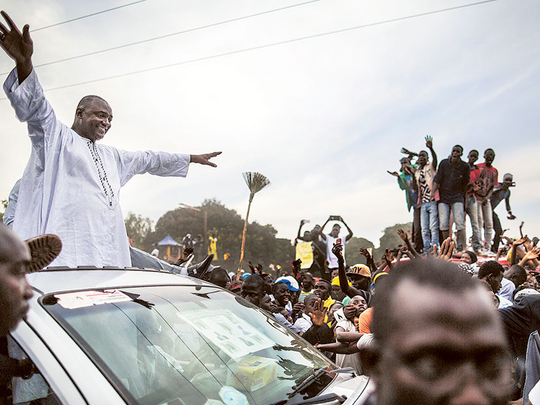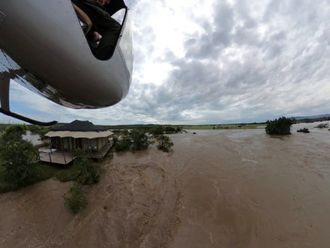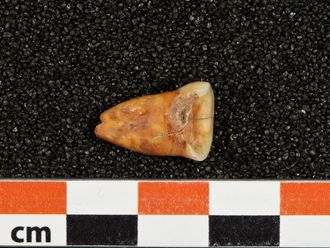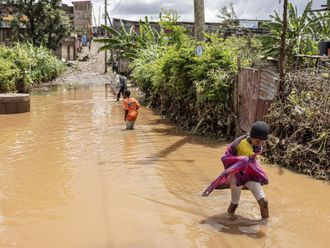
Banjul: After 22 years at the helm of a tiny West African nation that he’s determined to turn into an Islamic republic, Gambian President Yahya Jammeh is seeking a fifth term in elections on Thursday.
Jammeh, who came to power in a 1994 coup, toured the country extensively in the run-up to the vote, promising to build roads, clinics and schools. Having declared Gambia officially an Islamic republic early last year, he carried a copy of the Quran on the campaign trail and told voters to follow the commandments of God.
“I want to make it categorically clear that I will carry out my promise to turn the Gambia into a truly Islamic state,” Jammeh, 51, said on Tuesday as he addressed a crowd in the capital, Banjul, without saying how he’ll do that. The election will also help to “separate patriotic citizens from Western stooges,” he said last week.
His main challenger is Adama Barrow, who took over as head of the United Democratic Party after its leader, Ousainou Darboe, received a three-year prison sentence in July for organising a rare protest march. Barrow now leads a coalition of opposition parties and has pledged to appoint a transitional government if he wins.
“Essentially, the election will be a sham,” Sean Smith, Africa analyst at Bath, UK-based risk consultancy Verisk Maplecroft, said in an emailed response to questions. “It’s impossible for there to be a level playing field when state officials frequently arrest and torture opposition leaders and critically-minded journalists.”
Extraordinary powers
Gambia is isolated both by its repressive regime and by its geographical location as an English-speaking sliver of a country surrounded on three sides by French-speaking Senegal. Thousands of young people among the population of less than 2 million are trying to emigrate each year, with Gambians ranking consistently among the top three nationalities arriving by boat on Italy’s shores, according to the International Organisation for Migration.
In the one-round election, each candidate is represented by a metal drum in which voters cast a glass marble. Jammeh won 72 per cent of the votes in 2011. Internet services were blocked nationwide from Wednesday.
Bellicose statements and claims of extraordinary powers are hallmarks of the leadership style of Jammeh, who always carries the titles “professor” and “doctor” before his name. He regularly replaces top government officials, while courts convict people who voice criticism in public.
‘Personalised dictatorship’
“While many African countries have moved towards more genuinely democratic systems of governance, Gambia retains a highly authoritarian and extremely personalised dictatorship,” said Smith of Verisk Maplecroft.
Gambia’s already poor human rights record deteriorated especially after a failed attempt to overthrow Jammeh in 2014, according to advocacy groups including Amnesty International. Two prominent opposition activists died in detention earlier this year following the protest march that led to the imprisonment of Darboe, according to the US, which condemned the deaths. The European Union, the Gambia’s second-biggest trading partner after China, hasn’t yet carried out its threat to impose sanctions.
“The prisons are full to capacity with political prisoners,” Barrow said during his campaign. “I will free them all.”
Under Jammeh, Gambia’s relations with other international organisations have become increasingly strained. The government in October announced its intention to withdraw from the International Criminal Court, a week after South Africa said it would do so. A row over anti-homosexual comments by Jammeh led to Gambia’s withdrawal from the Commonwealth in 2013.
Tourism destination
Last year, he threatened to quit the African Union because of the body’s alleged pandering to the European Union. Election observers from the Economic Community of West African States aren’t attending Thursday’s vote, having dismissed the 2011 election as unfair.
Despite his anti-western rhetoric, Jammeh has fostered the development of a vibrant tourism industry that attracts more than 100,000 visitors a year to the nation’s beaches from Scandinavia, the UK and other European countries, making tourism the second-biggest foreign revenue earner.
Remittances account for more than 20 per cent of the Gambia’s gross domestic product, reaching $181 million (Dh3.67 billion) in 2015, according to World Bank data. The country also exports groundnuts and fish to the EU.












